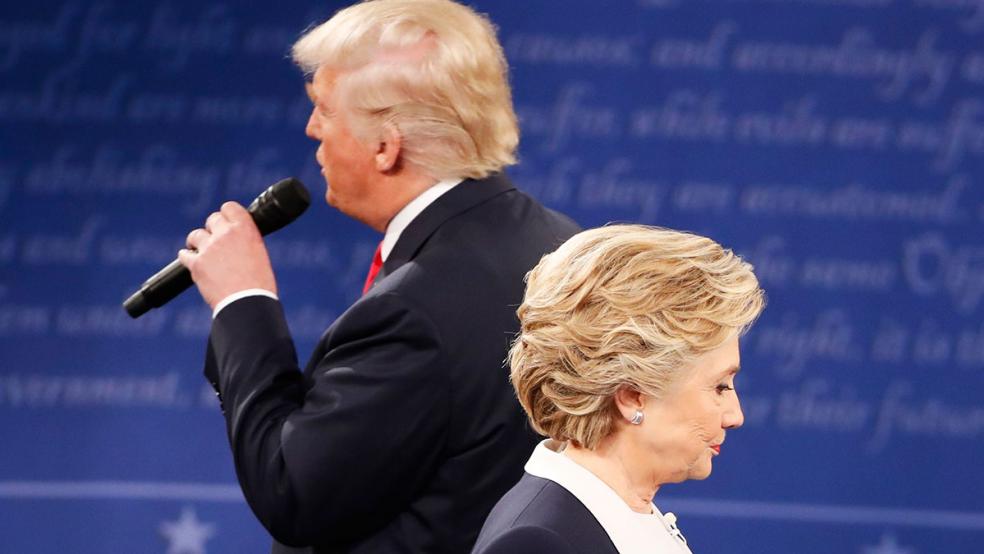In a year when extraordinarily unlikely events have come to pass with surprising regularity, there is now considerable interest in the possibility that, when votes are counted on Tuesday, the result is inconclusive. That is to say, that neither Democrat Hillary Clinton nor Republican Donald Trump achieves the 270 electoral votes needed to secure the presidency.
With the caveat that the likelihood of such an outcome is tiny (the website FiveThirtyEight puts it at 1.2 percent) there are a couple of distinct ways in which it could play out. The two candidates could, in theory, each finish with 269 electoral votes. Or, a third party candidate could win enough electoral votes to keep both of the major party contenders under 270.
Related: Is Trump Pulling Ahead? Here’s What the Polls Are Really Saying
In either case, the National Archives explains what would happen next:
“If no candidate receives a majority of Electoral votes, the House of Representatives elects the President from the 3 Presidential candidates who received the most Electoral votes. Each state delegation has one vote. The Senate would elect the Vice President from the 2 Vice Presidential candidates with the most Electoral votes. Each Senator would cast one vote for Vice President. If the House of Representatives fails to elect a President by Inauguration Day, the Vice-President Elect serves as acting President until the deadlock is resolved in the House.”
Given that the Republican Party controls more state delegations than the Democrats do, that would seem to be a recipe for a Trump presidency. However, there is another remote possibility.
Note that the rules require the House to choose from the three candidates who received the most electoral votes. In a 269-269 split, that would be immaterial. However, there is a small but very real chance that for the first time since 1968, a third-party candidate might win electoral votes at the ballot box.
Related: This Stock Market Indicator Points to a Trump Win
Evan McMullin, a former Capitol Hill staffer, is running as an independent, offering a conservative alternative to Trump. He is not doing particularly well nationwide, but has the potential to win the state of Utah in a three-way split. (The usually Republican Beehive State is in play this cycle because its heavily-Mormon population is turned off by Trump. McMullin is a fellow Mormon who went to Brigham Young University in Provo.)
Were McMullin to take Utah’s six electoral votes, that would put him in play as a candidate if the election were thrown to the House of Representatives.
It’s possible to imagine a scenario in which establishment Republicans, who have never been comfortable with Trump, might rally behind McMullin. It is, however, extremely unlikely, just like an Electoral College deadlock in the first place.
But then, a little more than a year ago, FiveThirtyEight gave Trump only a 2 percent chance of winning the Republican nomination in the first place.





